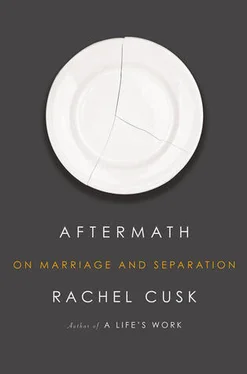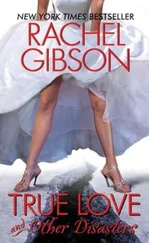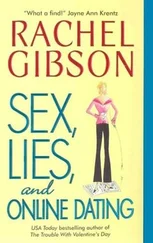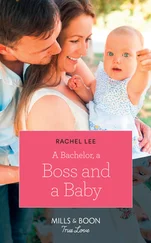Rachel Cusk - Aftermath - On Marriage and Separation
Здесь есть возможность читать онлайн «Rachel Cusk - Aftermath - On Marriage and Separation» весь текст электронной книги совершенно бесплатно (целиком полную версию без сокращений). В некоторых случаях можно слушать аудио, скачать через торрент в формате fb2 и присутствует краткое содержание. Год выпуска: 2012, Издательство: Farrar, Straus and Giroux, Жанр: Публицистика, Биографии и Мемуары, на английском языке. Описание произведения, (предисловие) а так же отзывы посетителей доступны на портале библиотеки ЛибКат.
- Название:Aftermath: On Marriage and Separation
- Автор:
- Издательство:Farrar, Straus and Giroux
- Жанр:
- Год:2012
- ISBN:нет данных
- Рейтинг книги:3 / 5. Голосов: 1
-
Избранное:Добавить в избранное
- Отзывы:
-
Ваша оценка:
- 60
- 1
- 2
- 3
- 4
- 5
Aftermath: On Marriage and Separation: краткое содержание, описание и аннотация
Предлагаем к чтению аннотацию, описание, краткое содержание или предисловие (зависит от того, что написал сам автор книги «Aftermath: On Marriage and Separation»). Если вы не нашли необходимую информацию о книге — напишите в комментариях, мы постараемся отыскать её.
Aftermath: On Marriage and Separation — читать онлайн бесплатно полную книгу (весь текст) целиком
Ниже представлен текст книги, разбитый по страницам. Система сохранения места последней прочитанной страницы, позволяет с удобством читать онлайн бесплатно книгу «Aftermath: On Marriage and Separation», без необходимости каждый раз заново искать на чём Вы остановились. Поставьте закладку, и сможете в любой момент перейти на страницу, на которой закончили чтение.
Интервал:
Закладка:
In the big upstairs room whose windows go all the way down to the floor there are two enormous, ornate gilt hooks mysteriously screwed into the high ceiling. One day, coming out of the house, I met an old woman standing outside on the pavement looking up at these windows. She told me that when she was younger she lived in this road and often used to stand where she was now, listening to the sound of singing that came out of them. It was the lady who owned the house then who was singing: she was an opera singer, and she lived here with a man who played a stringed instrument, a lute or perhaps a guitar, or maybe it was a mandolin. She it was who put the hooks into the ceiling: she hung her hammock from them and would sit at one end, singing, with her man at the other accompanying her, both of them swinging in the breezes from the open windows. At the time this image pierced me with a feeling that was almost pain, for that room was my bedroom and I often lay and looked at those hooks, seeing something in the enigma of them to which I could never give an exact name; in their golden extravagance and lack of usefulness they tantalised me and reproached me at the same time, for though I didn’t know what they were for I knew some force had put them there whose nature I both recognised and denied. These mysterious objects, these ferocious opulent hooks, expressed its terror and its beauty; they were, I felt sure, the opposite of a gutless adornment. Other people, seeing them, would sometimes betray something of my own alarm, as though these were the golden claws of an angry deity we had forgotten to placate. And they had fastened on my room, these claws, to remind me of something I didn’t seem to know or couldn’t remember, something to do with happiness, and with the power of the unknown to undo the known. What are they for? people would ask, gazing at them quizzically. And I would always answer that I didn’t know.
There is a more convenient dentist, in fact. Her practice is much closer to my house. This dentist is glamorous, with blonde waved hair and a slender, buxom figure like a fifties film star. Sometimes I see her slim calves disappearing up the grimy stairwell to the building, hear the rapid tick-tack of her high-heeled shoes. She wears little tailored outfits in beautiful colours, primrose and magenta, scarlet and pistachio green. She has a slightly distressed look about her as she comes and goes; an air of apprehension haunts her rosebud expression, like the film star in the suspenseful phase of the drama. Will the mystery resolve itself? Will the impossible become possible? Will our heroine win the day? In the mornings the road is full of rubbish, of litter the maritime winds blow across the pavements, of broken bottles and discarded food the seagulls tug from the plastic bags left out for the binmen. The dentist picks her way through it, the collar of her coat turned up, like a tragic starlet in a Paris backstreet.
I went to her practice once, made an appointment and climbed the narrow stairs to the first floor with my daughters. We needed to register with a dentist, and though it looked like we were simply following the promptings of fate in coming here, some secret vanity made me want the exotic dentist for her own sake, for like the golden hooks in my bedroom ceiling she represented my own forsaken sense of glamour, was another manifestation of the deity who found it so provoking to be denied. It was dark up there, and tenebrous, though outside it was a bright afternoon. A single bulb lit the gloomy hall. In the waiting room the blinds were down. I stood with my daughters at the vacant reception desk. We waited five minutes, ten. Presently I spoke to someone passing and was told to keep waiting. I could hear voices in other rooms, and footsteps going rapidly to and fro. I realised that something was happening: there was a feeling of drama here, a dark sense of incident in the muffled voices and the deserted desk. I heard the sound of drilling, and then more voices, low and urgent.
‘Has he come round?’ someone said.
‘He doesn’t want to wake up.’ This was the dentist’s voice.
‘Try again.’
I moved out into the hall and saw through the partly opened door the room the voices were coming from. I could see the dentist’s back: she was wearing a red silk blouse today, tightly cinched at the waist with a belt; and, unusually, trousers over her vertiginous heels. Her yellow hair flowed in serpentine waves over her shoulders. She was bending over the dentist’s chair, in which lay the unconscious body of a man. Another woman, a nurse I suppose, was there too: through the gap in the door I saw the two women, together, stooped over the man’s body. They shook him and prodded him. They called in his ear. He lay there like a broken toy they had, between them, destroyed; as though, fascinated by their power over him, they had forgotten for a moment his fallibility. I went back to the waiting room, where my daughters still stood. Their faces were uncertain. Along the hall the man had begun to groan, loud and long and terrible groans that filled the gloomy half-darkness of the waiting room.
‘I think we should go,’ I said. ‘I think we should come back another time.’
My daughters looked more uncertain still.
‘Why?’ they said.
Their response surprised me. Could they not see for themselves that things were not right? The man groaned and bellowed down the hall. Was this what a world run by women looked like? A woman, I thought, should be more than a mere impersonator. My daughters’ anxious faces, the groaning man, the deserted reception desk in the shadowy waiting room: in the presence of these things I felt the presence of failure. It was I who had brought them here, who had made the appointment; now I was saying we had to go.
‘There’s been a mix-up,’ I said. ‘I was sure the appointment was today but they haven’t got it written down.’
‘Oh,’ they said.
‘Perhaps we’ll find a different dentist,’ I said. ‘Perhaps this one isn’t very well organised.’
They looked a little suspicious — after all, I had made much of the proximity of this dentist to our house. What was going on here? Out in the shadowy hall, we met the dentist herself, hastening from her room. She looked flushed and harried; she had her coat on with the collar turned up. Behind her the man still lay splayed in the chair, groaning dreadfully. The nurse appeared in another doorway.
‘Is he all right?’ she said.
‘He’ll live,’ said the dentist harshly. ‘He feels a bit sick, that’s all. I’m just going to buy him a can of Coke.’
She pushed past us, closing her collar around her throat with a flash of red-painted fingernails. I smelled her perfume, heard the jingle of coins in her pocket. She tick-tacked away down the stairs.
COUPLES
Everywhere people are in couples. On the corner of my road I pass a man and a woman, kissing in the passing traffic. I pass a heavily tattooed couple coming back side by side from the shops, their arms full of purchases, their children in a line behind them like ducklings. I pass a man and a woman with Down’s Syndrome, holding hands. They make it seem so easy, to love.
The weather is fine for the time of year. In the mornings the sun streams through the windows into the half-empty rooms, like sun falling on a ruin. The timbers creak with the unaccustomed warmth, sending the sound of footfalls around the house. They travel eerily up and down the stairs and across the ceilings overhead, as though there were someone in the room above who had crossed to the window to look out. The water mutters in the pipes; periodically the boiler ignites, choking and grumbling cholerically in the basement. One day it finally falls silent; the dishwasher breaks, the drains clog, the knobs of doors and cupboards come away unexpectedly in the hand. There is the sound of dripping water, and a dark stain spreads across the kitchen wall, the plaster bulging and flaking like afflicted skin. The children’s hamsters scuttle in their separate cages, oblivious. They can’t live together, for as a species they are too irascible. They condemn themselves to solitude, immersed in their routines of sleeping and gnawing and burrowing. Sometimes they climb the bars at the sides of the cages and look out with inquisitive bead-bright eyes, as though, having issued from their self-absorption, they now expect something to happen. In a way they are too trusting, for no one notices their changes of circumstance. At night the high-pitched sound of them running on their separate wheels fills the dark silent house.
Читать дальшеИнтервал:
Закладка:
Похожие книги на «Aftermath: On Marriage and Separation»
Представляем Вашему вниманию похожие книги на «Aftermath: On Marriage and Separation» списком для выбора. Мы отобрали схожую по названию и смыслу литературу в надежде предоставить читателям больше вариантов отыскать новые, интересные, ещё непрочитанные произведения.
Обсуждение, отзывы о книге «Aftermath: On Marriage and Separation» и просто собственные мнения читателей. Оставьте ваши комментарии, напишите, что Вы думаете о произведении, его смысле или главных героях. Укажите что конкретно понравилось, а что нет, и почему Вы так считаете.












